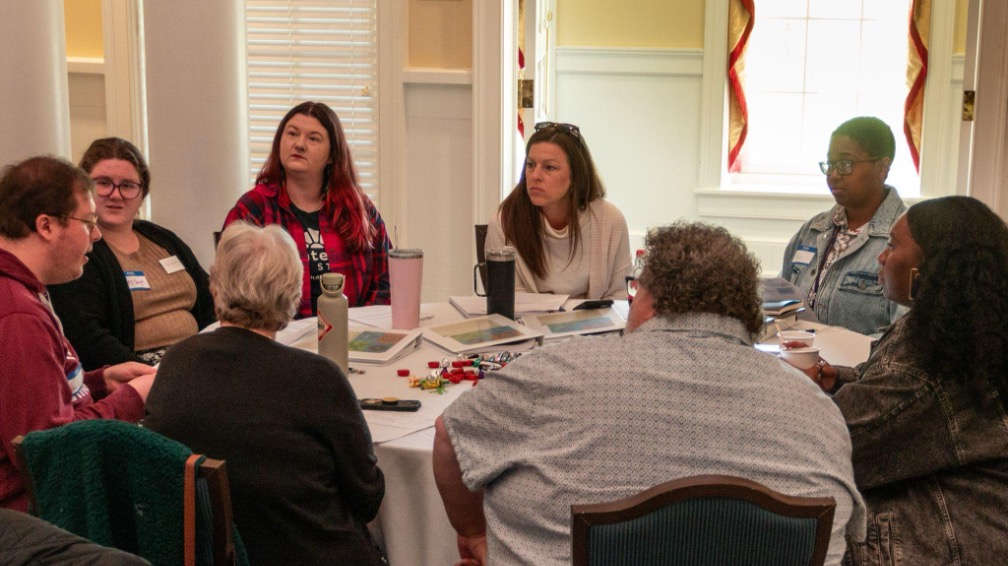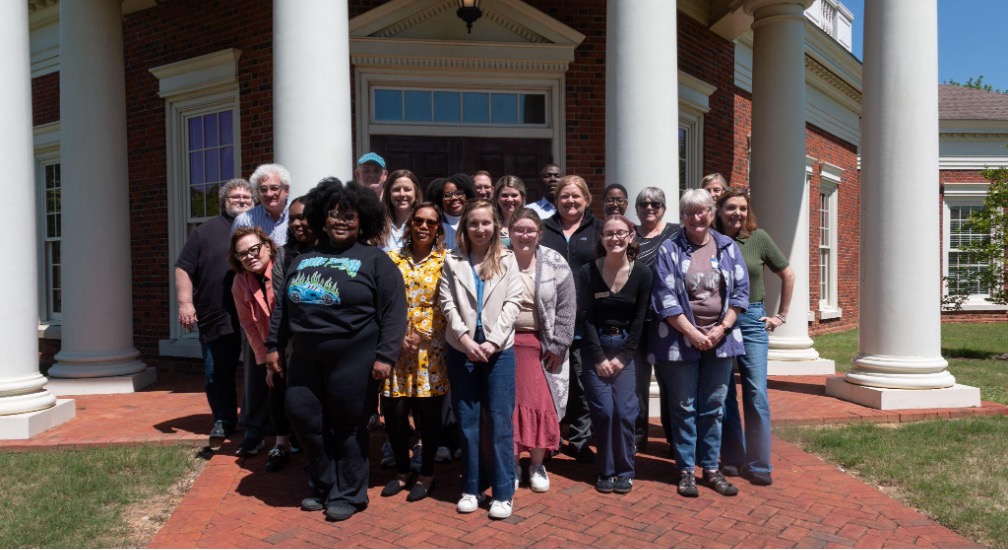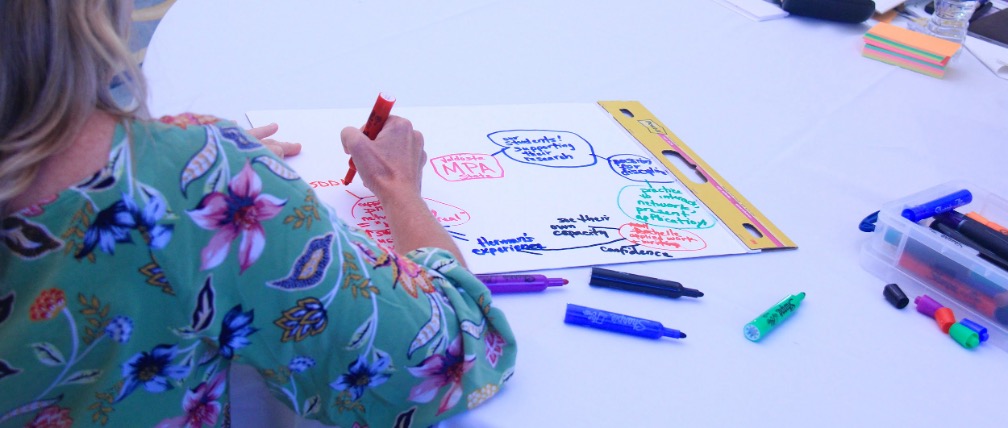Tracing Ripples, Strengthening Networks: How Ripple Effects Mapping Builds Community Through Storytelling

In early April, the Southern Deliberative Democracy Network (SDDN), with support from the National Issues Forums Institute and in partnership with the David Mathews Center for Civic Life and Keys to the City Community Coaching, hosted a two-day workshop in Montevallo, Alabama. Community leaders, facilitators, researchers, and practitioners came together to explore Ripple Effects Mapping (REM)—a participatory evaluation method that surfaces stories of change, connection, and impact through reflection and storytelling.

With guidance from Ramona Madhosingh-Hector and Linda Seals of UF/IFAS Extension, and Mandy Baily of Coalescing, LLC, participants moved through the REM process not just as observers, but as active learners. They experienced the method firsthand, building skills to bring REM into their own communities and exploring how it can deepen understanding, spark connection, and strengthen relationships.
Unlike traditional evaluation methods that focus solely on quantifiable outcomes, Ripple Effects Mapping (REM) offers a more holistic lens. Grounded in the principles of Appreciative Inquiry, the approach lifts up what’s working and focuses on strengths. Through guided storytelling and reflective dialogue, participants share lived experiences and map the ripples that flow outward from an initial effort—showing how change spreads in ways that numbers alone can’t capture.

What emerges isn’t just data, but a living map made up of interconnected relationships, actions, and impact that show how change ripples through a community over time. The map captures both expected and unexpected impacts, revealing how efforts grow in ways that are often hard to quantify. This method captures nuance and complexity and centers the voices of those closest to the work.
REM is more than an evaluation—it’s a connection point. The conversations themselves often spark new insights, alignment, and a sense of shared momentum. Once the map is complete, the data is further analyzed using the Community Capitals Framework, allowing communities to tell a fuller story of their work’s impact across multiple areas of well-being. It’s a reminder that evaluation can be participatory, reflective, and even energizing.
To truly understand the power of Ripple Effects Mapping, participants didn’t just learn about the process—they experienced it firsthand. As part of the workshop, they stepped into a practice REM session, many taking on fictional roles or sharing imagined stories to simulate a real mapping experience. But something unexpected unfolded. As people spoke, moments of empathy, connection, and reflection emerged. Several participants shared how powerful it was to witness the ripple effect come to life, even in a practice setting. The process revealed how REM not only surfaces impact, but also fosters care, deepens relationships, and makes space for what matters most in a community.
As many of the workshop’s participants were folks who regularly hold space for others, learning how to use REM by being immersed in the experience themselves brought about a meaningful shift. We noticed that the process actually mirrored its purpose: it was interesting to observe that as participants practiced REM, they engaged in the kind of reflection and connection it was meant to support. People who’ve invested their careers in creating spaces for dialogue and relationships had a rare chance to slow down, reflect, and recognize themselves in one another’s stories.
True to SDDN’s mission of serving as a learning community and supportive conduit for strengthening civic life across the South, the workshop cultivated more than a space to build skills—it was a space to see the power of collective purpose. By deepening relationships, surfacing common values, and revealing the connective threads across participants’ efforts, the workshop helped grow a stronger, more aligned network of practitioners dedicated to fostering connection, belonging, and resilience across the region.

By the end of the workshop, participants left not just equipped—but inspired. There was a shared sense of enthusiasm and renewed energy, with many already imagining how they could incorporate Ripple Effects Mapping into their own work. For some, it offered a new way to recognize and communicate impact; for others, it reinforced the power of storytelling and reflection in building community. As Chauntina Whittle, the McKenzie Civic Fellow from the David Mathews Center for Civic Life, shared: “We are celebrating people and stories. Sometimes we get too in the weeds of the work, so much so that we miss the stories, we miss the impact…” When reflecting on the experience, Lauren Cochran from the civic engagement office at Troy University shared that one of the biggest impacts of the workshop was the new connections they made and that they hoped to “continue collaborating, learning from each other, and supporting each other.” What began as a training became something much more—a space of connection, curiosity, and possibility.
The Southern Deliberative Democracy Network (SDDN) provides members with a community of support, learning, and collaboration. Members are scholars, practitioners, community and faith leaders from various fields united in their desire to strengthen civic life across the Southern United States. SDDN provides regular opportunities for members to connect, encourage one another, and share ideas and promising practices. The network also offers opportunities for members to collaborate on dialogue and deliberation initiatives, workshops on participatory practices, and research on civic health in the South. The National Issues Forums Institute serves as the “institutional home” for the SDDN.
Scenario Six Collective is a group of creative community engagement practitioners and experience designers dedicated to strengthening collaboration amongst groups of people through the design and facilitation of connection-centered programs, strategies, and events.
We were invited to observe and reflect on this REM workshop as part of our ongoing exploration of network storytelling and evaluation.

